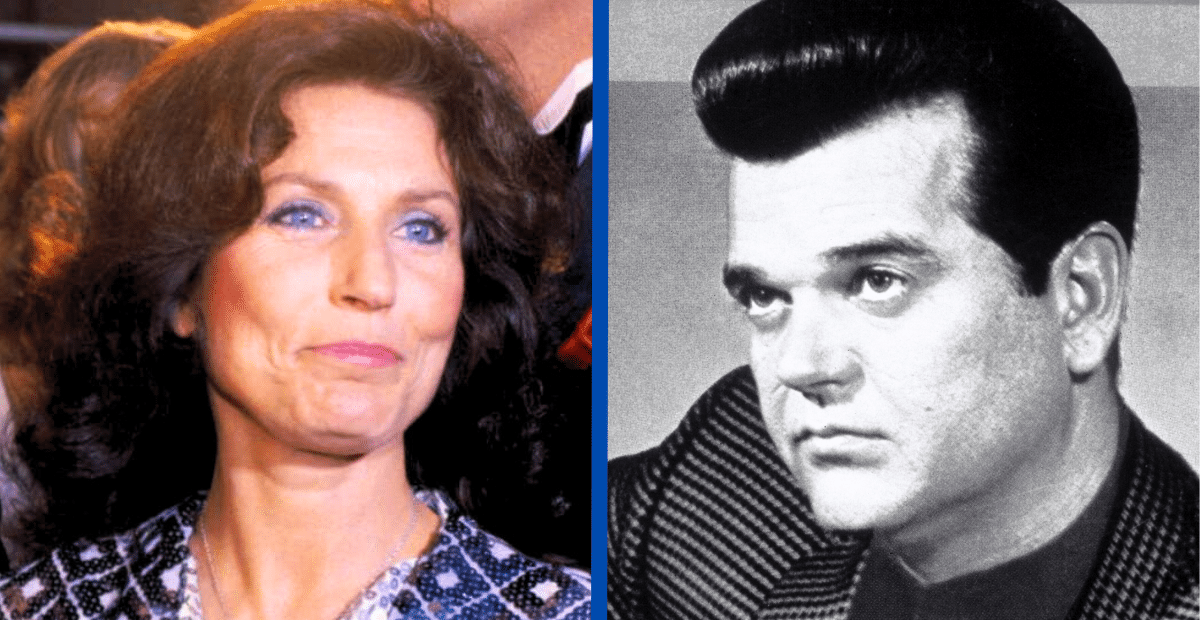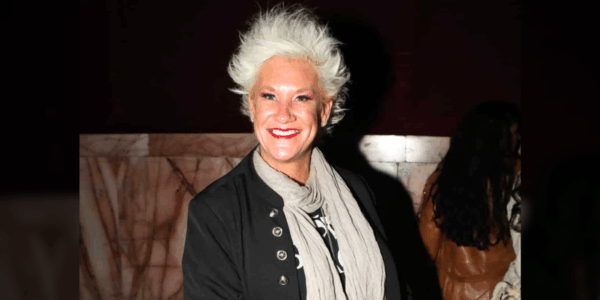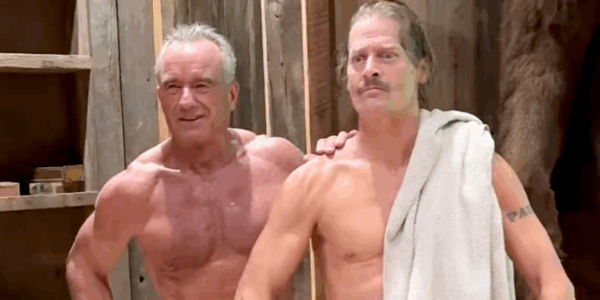11 Iconic Country Songs That Were Banned From Radio
on Jan 03, 2025 • Updated Jan 24, 2025

Some Of Country Music’s Greatest Songs Were Once Banned From Being Played On The Radio
You may be surprised to learn that some of your favorite country songs were once banned from being played on the radio. Country songs have been banned from radio airplay for multiple reasons, often because they mention political topics or “intimate” situations.
Other songs have been banned after being deemed “controversial” for reasons such as pro-LGBTQ+ lyrics or discussing contraception. One track in this list was banned for a reason that didn’t pertain to the song at all!
Despite being shunned by the radio, all of the songs in this list became hit singles. Some are now regarded as classics, while others draw criticism from modern listeners who feel radio stations made the right call to ban them back in the day.
Keep reading to learn more about 11 country songs that were once banned from being played on the radio. You’ll be shocked to see some of the songs included in this list.
11 Country Songs That Were Banned From Radio, But Still Became Big Hits
“Rated X” – Loretta Lynn
Loretta Lynn was never afraid to speak her mind. She tackled hot-button issues in her lyrics and sometimes faced consequences for doing so.
Lynn’s 1972 single, “Rated X,” addressed the stigma divorced women faced at the time. As some of the lines go:
“Why, us women don’t have a chance.
‘Cause if you’ve been married, you can’t have no fun at all
No, you’re rated X.”
Lynn didn’t mince words in “Rated X,” which ruffled some feathers at country radio. Several stations banned the song and refused to play it.
Despite this, “Rated X” claimed the #1 spot on the country charts in the U.S. and Canada. It remained on the chart for 14 weeks in the U.S.
“Indian Outlaw” – Tim McGraw
Tim McGraw released “Indian Outlaw” in 1994. In the song, McGraw takes on the role of a Native American man described as “Half Cherokee and Choctaw.”
“Indian Outlaw” drew criticism at the time of its release for mentioning many Native American stereotypes and cliches in the lyrics. The song references wigwams, peace pipes, headbands, teepees, and medicine men.
Because of this, some country radio stations banned “Indian Outlaw” from airplay. But the song still became a Top 10 hit for McGraw. It reached the eighth spot on the Hot Country Songs chart.
Today, some modern listeners agree with the initial criticism “Indian Outlaw” received and consider the song offensive.
“It Wasn’t God Who Made Honky Tonk Angels” – Kitty Wells
Kitty Wells released “It Wasn’t God Who Made Honky Tonk Angels” in 1952. The song was a rebuttal to Hank Thompson’s “The Wild Side of Life.”
In the track, Wells sings how many women who’ve “gone wrong” have done so because an unfaithful man led them down that path. As some of the lyrics go:
“It wasn’t God who made honky tonk angels.
As you said in the words of your song.
Too many times married men think they’re still single.
And that’s caused many a good girl to go wrong.”
While most fans wouldn’t bat an eye at Wells’ message today, it was a controversial one to share in 1952. The mostly conservative country artist did not agree with the sentiment expressed in the song.
As a result, “It Wasn’t God Who Made Honky Tonk Angels” was banned from NBC’s radio network. The Grand Ole Opry also forbade Wells from performing the song on their program.
Despite the backlash, “It Wasn’t God Who Made Honky Tonk Angels” reached #1 on the Hot Country Songs chart. It was the first single by a solo female artist to top the chart.
“It Wasn’t God Who Made Honky Tonk Angels” was inducted into the Grammy Hall of Fame in 1998.
“Strawberry Wine” – Deana Carter
Deana Carter released “Strawberry Wine” in 1996. The song’s narrator reflects on her “first time” with an older boy she loved, who she met during a summer spent at her grandparents’ farm.
But their love fizzled out as fast as it sparked. The boy left to go back to college, and the narrator dell out of touch with him. Singing to the audience in adulthood, the narrator considers those youthful memories to be “bittersweet.”
Some radio stations didn’t feel comfortable playing “Strawberry Wine” since the narrator was 17 years old when she got her “first taste of love.”
But many other stations played the song. It reached the #1 spot on the Hot Country Songs chart. It also won the CMA Award for Song of the Year in 1997.
“Before He Cheats” – Carrie Underwood
Carrie Underwood released her revenge anthem “Before He Cheats” in 2006. She sings about destroying her former lover’s vehicle after discovering he’s been unfaithful.
But Underwood’s proud declaration that she took a “Louisville Slugger to both headlights” is not the reason why “Before He Cheats” was banned from country radio. In fact, the ban had nothing to do with the song itself.
Folks in the U.S. had no problem with Underwood or the song. But radio station KiSS 105.3 FM in Ottawa, Canada reportedly banned “Before He Cheats” and Underwood’s other songs after her husband, former NHL star Mike Fisher, was traded from the Ottawa Senators to the Nashville Predators in 2011.
“I heard about it right away and Carrie heard about it and she was extremely disappointed and frustrated,” Fisher told the Vancouver Sun at the time. “I think they meant it as a joke that really wasn’t funny.”
The “ban” on Underwood’s music occured years after “Before He Cheats” debuted, so it had no impact on the song’s performance. It was a #1 country hit in both the U.S. and Canada.
“Follow Your Arrow” – Kacey Musgraves
Kacey Musgraves released “Follow Your Arrow” in 2013. The song describes how people are constantly judged by others, and you’re “damned if you do, and damned if you don’t.“
In the chorus, Musgraves encourages her listeners to “follow [their] arrow wherever it points” and stay true to themselves.
But “Follow Your Arrow” didn’t strike a chord with more conservative country fans. The song experienced some backlash for mentioning “a joint” and expressing a pro-LGBTQ+ message.
Some of the song’s most controversial lyrics were:
“So, make lots of noise.
Kiss lots of boys.
Or kiss lots of girls, if that’s something you’re into.
When the straight and narrow gets a little too straight,
Roll up a joint, or don’t…”
Multiple radio stations banned the song, fearing the pushback they’d receive if they played it. Some programmers believed listeners weren’t ready to hear a song like “Follow Your Arrow.”
“I wish I could play that song on my station,” an anonymous programmer told Billboard at the time.
“Follow Your Arrow” still managed to find an audience. It reached the 10th spot on the Hot Country Songs chart and won the CMA’s Song of the Year award in 2014.
“You’ve Never Been This Far Before” – Conway Twitty
Conway Twitty released “You’ve Never Been This Far Before” in 1973. Twitty’s narrator sings to the woman he loves as they engage in an intimate moment, saying:
“I can feel your body tremble,
As you wonder what this moment holds in store.
And as I put my arms around you,
I can tell you’ve never been this far before.”
While these lyrics wouldn’t shock most modern listeners, they were considered “risqué” in the 1970s. As a result, several radio stations banned “You’ve Never Been This Far Before.”
Despite the bans, the track reached the #1 spot on the country charts in both the U.S. and Canada.
“Red Ragtop” – Tim McGraw
Tim McGraw released “Red Ragtop” in 2002. As the narrator, he reflects on a relationship he had when he was 20. The woman he was with got pregnant unexpectedly.
McGraw’s narrator sings:
“I was out of a job and she was in school,
And life was fast and the world was cruel.
We were young and wild.
We decided not to have a child.”
Their relationship didn’t last long after that. As McGraw sings, “I was back in that red ragtop. On the day she stopped loving me.“
Several radio stations banned “Red Ragtop” since it mentioned ending a pregnancy. Despite the bans, the song peaked at #5 on the Hot Country Songs chart and #60 on the all-genre Billboard Hot 100.
“We Shall Be Free” – Garth Brooks
Garth Brooks released “We Shall Be Free” in 1992. In the song, Brooks imagines a time “when we all walk hand in hand.”
Brooks also expressed support for the LGBTQ+ community, singing:
“When we’re free to love anyone we choose,
When this world’s big enough for all different views,
When we all can worship from our own kind of pew,
Then we shall be free.”
Brooks’ song about acceptance and togetherness was not well-received by all country stations. Several stations banned or pulled the track from rotation, feeling its message was too polarizing and had the potential to upset listeners.
The bans may have had a slight impact on the song’s performance. “We Shall Be Free” was the first of Brooks’ songs to miss the Top 10 on the Hot Country Songs chart. Still, it managed to peak at the 12th spot.
“We Shall Be Free’ is definitely and easily the most controversial song I have ever done,” Brooks wrote in the CD booklet for his 1994 album, The Hits. “A song of love, a song of tolerance from someone who claims not to be a prophet but just an ordinary man. I never thought there would be any problems with this song.”
“Okie From Muskogee” – Merle Haggard
Merle Haggard‘s “Okie from Muskogee” is simultaneously one of the most iconic and controversial country songs of all time. “The Hag” released the track in 1969.
Haggard was upset seeing the anti-war protests at the time of the Vietnam War. He claimed he wrote “Okie” in response, and to show support for the troops.
“These soldiers were giving up their freedom and lives to make sure others could stay free. I wrote the song to support those soldiers,” Haggard told The Boot in 2010.
As the song goes:
“We don’t smoke marijuana in Muskogee.
We don’t take our trips on LSD.
We don’t burn our draft cards down on Main Street,
‘Cause we like livin’ right, and bein’ free.”
“Okie from Muskogee” was considered controversial for dismissing the counterculture movement. Other listeners didn’t appreciate how the song dismissed new ideas and lifestyles.
Some radio stations feared the song was too political and refused to play it. Still, it managed to reach the #1 spot on the Hot Country Songs chart and is known as one of Haggard’s signature tracks.
As time passed, even Haggard himself felt differently about “Okie.” He told American Songwriter in 2010:
“As it’s stayed around now for 40 years, I sing the song now with a different attitude onstage… I’ve become educated…I play it now with a different projection. It’s a different song now. I’m different now.”
“The Pill” – Loretta Lynn
Loretta Lynn released “The Pill” in 1975. In the song, Lynn sings about reclaiming her freedom after having several children in a row. She starts “The Pill” and proudly lets her husband know:
“There’s gonna be some changes made right here on Nursery Hill.
You’ve set this chicken your last time cause now I’ve got the pill.”
“The Pill” was revolutionary, as contraception was not talked about as openly (or as positively) in the 1970s as it is today. Many believed that increased use of “The Pill” would encourage women to engage in promiscuous relationships.
Considering that, you may not be surprised to hear that several country radio stations refused to play “The Pill.” Still, the song reached #5 on the Hot Country Singles chart. It also claimed the 70th spot on the all-genre Hot 100 chart, making it the biggest pop hit of Lynn’s solo career.
Years later, Lynn discussed the controversy surrounding “The Pill” during PBS’ American Masters special about her life. Watch that moment below.
If you enjoyed this article, be sure to check out our list of 7 ’80s Country Hits That Are Now Considered Offensive Today.






















